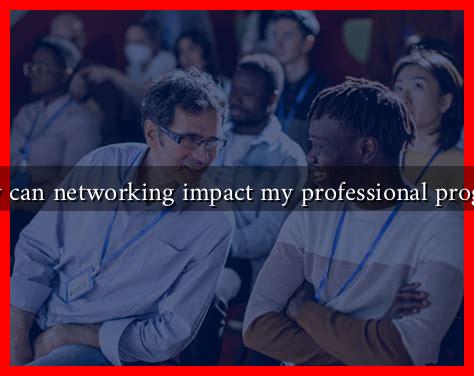-
Table of Contents
How Can Networking Impact My Professional Progress?
In today’s fast-paced and interconnected world, networking has become an essential component of professional success. Whether you are a recent graduate, a mid-career professional, or an executive, the relationships you build can significantly influence your career trajectory. This article explores the various ways networking can impact your professional progress, supported by examples, case studies, and relevant statistics.
The Power of Connections
Networking is not just about exchanging business cards or connecting on LinkedIn; it is about building meaningful relationships that can lead to opportunities. According to a study by LinkedIn, 85% of jobs are filled through networking. This statistic underscores the importance of cultivating a robust professional network.
Opportunities for Career Advancement
One of the most significant impacts of networking is the access it provides to job opportunities. When you have a strong network, you are more likely to hear about job openings before they are publicly advertised. Here are some ways networking can lead to career advancement:
- Referrals: Many companies prefer to hire candidates who come recommended by current employees. A referral can significantly increase your chances of landing an interview.
- Insider Information: Networking can provide you with insights into company culture, job requirements, and industry trends that are not readily available through job postings.
- Mentorship: Building relationships with experienced professionals can lead to mentorship opportunities, providing guidance and support as you navigate your career.
Building a Personal Brand
Networking also plays a crucial role in establishing and enhancing your personal brand. Your personal brand is how you present yourself to the professional world, and networking helps you shape that image. Here’s how:
- Visibility: Attending industry events, conferences, and seminars increases your visibility among peers and leaders in your field.
- Expertise Sharing: Engaging in discussions, writing articles, or giving presentations can position you as an expert in your area, attracting more connections.
- Social Proof: Recommendations and endorsements from your network can enhance your credibility and reputation.
Expanding Knowledge and Skills
Networking is not just about what others can do for you; it’s also about what you can learn from them. Engaging with a diverse group of professionals can expose you to new ideas, perspectives, and skills. Here are some benefits:
- Learning Opportunities: Networking can lead to workshops, webinars, and training sessions that enhance your skill set.
- Industry Insights: Conversations with peers can provide valuable insights into industry trends and best practices.
- Collaboration: Networking can lead to collaborative projects that allow you to apply your skills in new ways.
Case Study: The Power of Networking
Consider the case of Sarah, a marketing professional who was struggling to advance in her career. After attending a few industry networking events, she met a senior marketing director who became her mentor. Through this connection, Sarah learned about upcoming job openings and was eventually referred to a position that aligned perfectly with her skills. Within a year, she was promoted to a managerial role, all thanks to the relationships she built through networking.
Statistics That Speak Volumes
To further emphasize the importance of networking, consider these statistics:
- According to a survey by the Bureau of Labor Statistics, 70% of jobs are found through networking.
- A study by the Harvard Business Review found that professionals with strong networks are 50% more likely to receive promotions.
- Networking can lead to a 10% increase in salary, according to a report by the National Bureau of Economic Research.
Conclusion
In conclusion, networking is a powerful tool that can significantly impact your professional progress. By building meaningful connections, you can access job opportunities, enhance your personal brand, and expand your knowledge and skills. As demonstrated through case studies and statistics, the benefits of networking are undeniable. To maximize your career potential, invest time in cultivating your professional network. Remember, it’s not just about who you know; it’s about who knows you and what you can offer.
For more insights on networking strategies, consider visiting Forbes.

